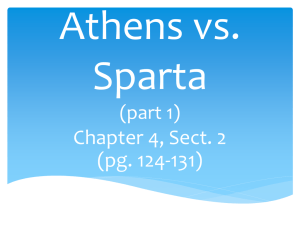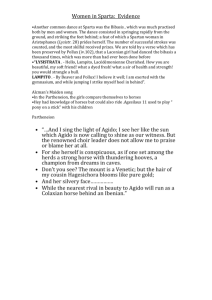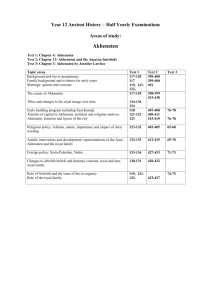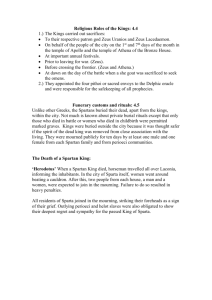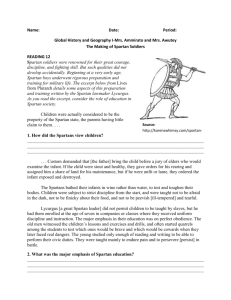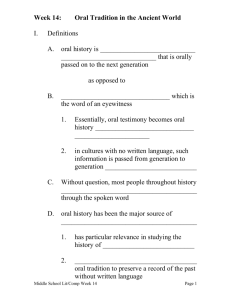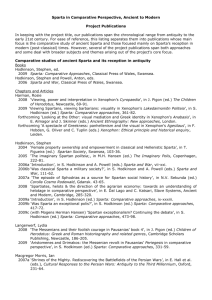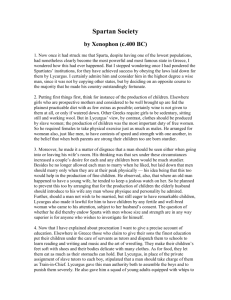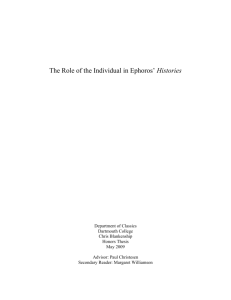Abstract
advertisement
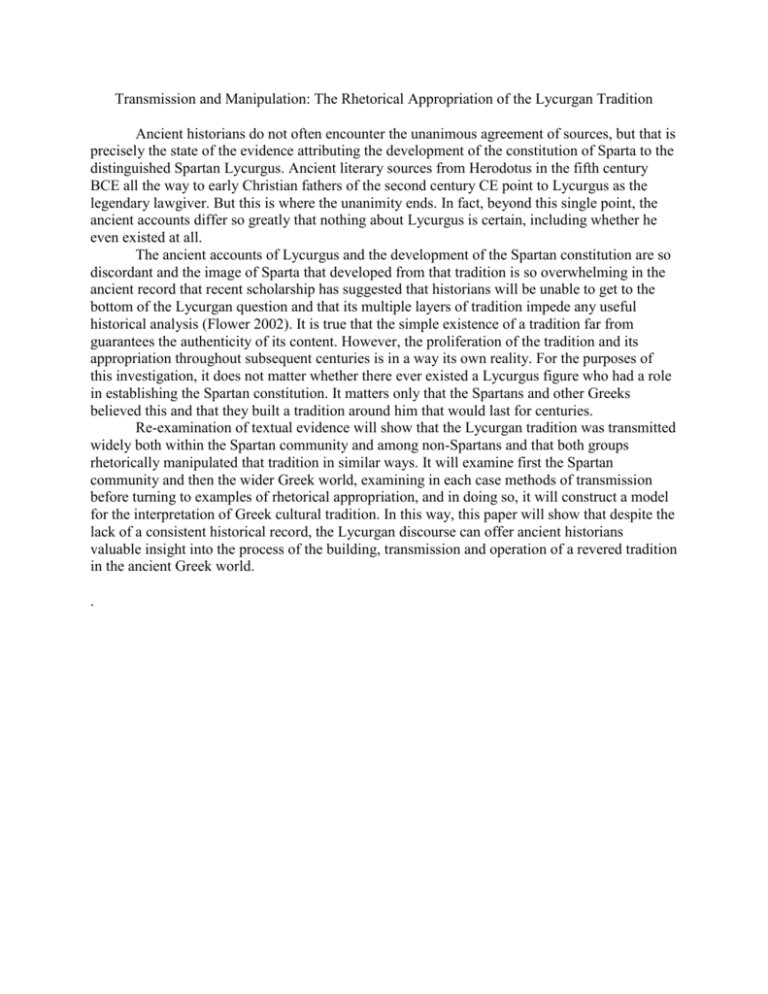
Transmission and Manipulation: The Rhetorical Appropriation of the Lycurgan Tradition Ancient historians do not often encounter the unanimous agreement of sources, but that is precisely the state of the evidence attributing the development of the constitution of Sparta to the distinguished Spartan Lycurgus. Ancient literary sources from Herodotus in the fifth century BCE all the way to early Christian fathers of the second century CE point to Lycurgus as the legendary lawgiver. But this is where the unanimity ends. In fact, beyond this single point, the ancient accounts differ so greatly that nothing about Lycurgus is certain, including whether he even existed at all. The ancient accounts of Lycurgus and the development of the Spartan constitution are so discordant and the image of Sparta that developed from that tradition is so overwhelming in the ancient record that recent scholarship has suggested that historians will be unable to get to the bottom of the Lycurgan question and that its multiple layers of tradition impede any useful historical analysis (Flower 2002). It is true that the simple existence of a tradition far from guarantees the authenticity of its content. However, the proliferation of the tradition and its appropriation throughout subsequent centuries is in a way its own reality. For the purposes of this investigation, it does not matter whether there ever existed a Lycurgus figure who had a role in establishing the Spartan constitution. It matters only that the Spartans and other Greeks believed this and that they built a tradition around him that would last for centuries. Re-examination of textual evidence will show that the Lycurgan tradition was transmitted widely both within the Spartan community and among non-Spartans and that both groups rhetorically manipulated that tradition in similar ways. It will examine first the Spartan community and then the wider Greek world, examining in each case methods of transmission before turning to examples of rhetorical appropriation, and in doing so, it will construct a model for the interpretation of Greek cultural tradition. In this way, this paper will show that despite the lack of a consistent historical record, the Lycurgan discourse can offer ancient historians valuable insight into the process of the building, transmission and operation of a revered tradition in the ancient Greek world. . Select Bibliography Cartledge, Paul. Sparta and Lakonia: A Regional History 1300 – 362. London: Routledge, 1979. Ducat, Jean. Spartan Education: Youth and Society in the Classical Period. Swansea: Classical Press of Wales, 2006. Flower, Michael A. “The Invention of Tradition in Classical and Hellenistic Sparta.” In Sparta Beyond the Mirage, edited by A. Powell and S. Hodkinson, 191-217. Swansea: Classical Press of Wales, 2002. Hodkinson, S. “The Development of Spartan Society.” In The Development of the Polis in Archaic Greece, edited by L.G. Mitchell and P.J. Rhodes, 83-102. London: Routledge, 1997. Huxley, G. L. “Herodotos on Myth and Politics in Early Sparta.” Proceedings of the Royal Irish Academy 83C (1983): 1-16. Jones, A.H.M. “The Lykurgan Rhetra.” In Ancient Society and Institutions: Studies Presented to V. Ehrenberg, edited by E. Badian, 165-175. Oxford: Blackwell, 1966. Kennell, Nigel. The Gymnasium of Virtue: Education and Culture in Ancient Sparta. Chapel Hill: University of North Carolina Press, 1995. Kõiv, Mait. “The Origins, Development and Reliability of the Ancient Tradition about the Formation of the Spartan Constitution.” Historia 54 (2005): 233-264. Parker, Victor. “Tyrants and Lawgivers.” In The Cambridge Companion to Archaic Greece, edited by H.A. Shapiro, 13-39. Cambridge: Cambridge University Press, 2007. Starr, Chester G. Starr. “The Credibility of Early Spartan History.” In Sparta, edited by Michael Whitby, 26-42. New York: Routledge, 2002.


